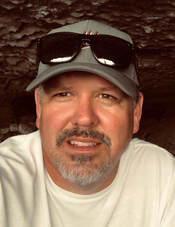Bridging Leadership Lessons from the Workplace and Those Experiences Shaping Today's Youth and Tomorrow's Leaders
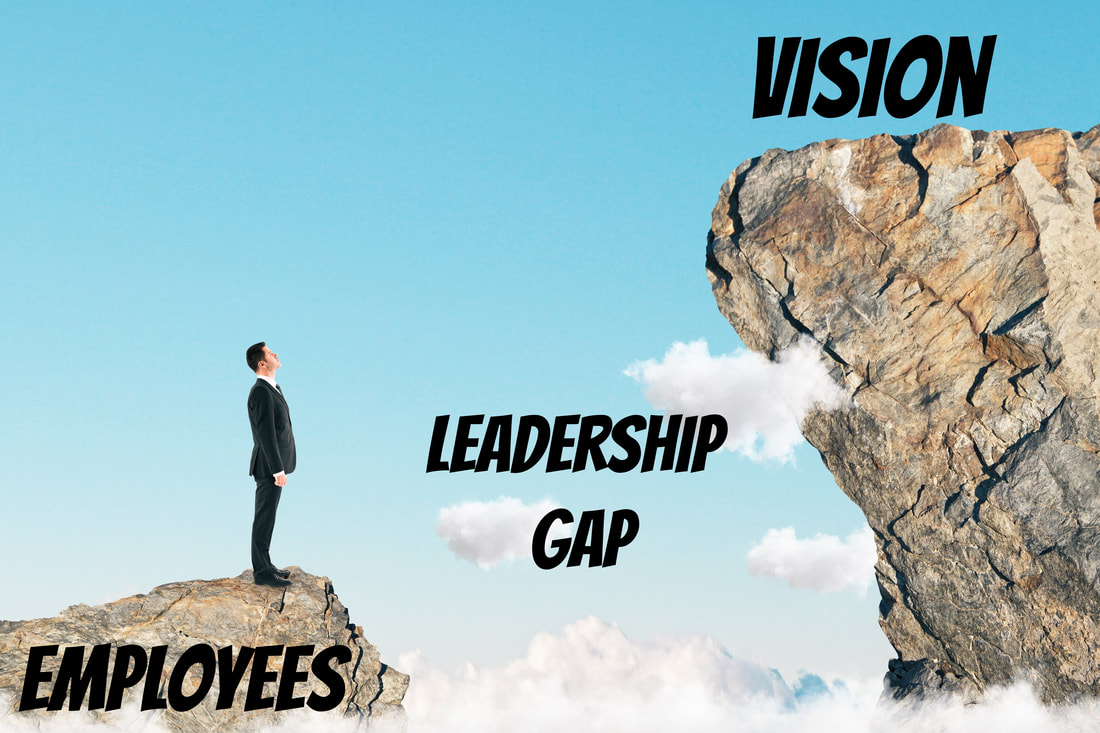 I recently gave a talk on the 3 Pillars of Impact with the focus being on leaders actually walking the walk and putting the Pillars into action. During the talk, I spoke about the challenge facing leaders today is closing the gap between the vision of the organization and where the employees are operating. While this leadership gap has always existed, heading into 2024 highlights the evolution of the gap. We talk about the “post covid” impact as if the virus was the cause for a lot of the changes, but this really wasn’t the case. We have a generation hitting the workforce that grew up with social media and influencers. A generation who had been given phones and devices since grade school and were raised by bulldozing, helicopter flying parents. It wasn’t covid, it was us. People Need to Make an Impact This has always been the case for employees, but the difference is this generation wants to make the impact now! They don’t want to invest their time and work their way up following a leadership development plan. They could already have hundreds of thousands of followers on social media - more than your company. It is more important that THEY make an impact than for the COMPANY to make the impact. Furthermore, the impact they seek isn’t necessarily something you will find in a KPI or productivity metric. It might be on the intangible side of relationships or possibly, not even something that will show up in the business plan. The role they play at work may be their avenue to make an impact on the community, the environment, or an industry working group. Work Ethic has been Redefined We sit around in our meeting rooms complaining about how this younger generation doesn’t want to work. They don’t put in the hours to learn; they just want it handed to them. But how different is it to us when we were younger? The Gen Xers grew up with Gordon Gekko dominating Wall Street and the IPOs of the Tech Stock Boom. We all wanted instant success as well. Now, there are electronic gaming scholarships to colleges, YouTube gamers are worth millions, and teenage influencers can make or break a product depending on the way something makes them feel or look. They are still dedicating countless hours to their craft, but what they see as valuable is different from what is our definition. We are still viewing the world from our perspective and OUR definition. We view it from how we experienced life and not from the way life is today. Overcoming Invisible Leadership I said earlier it wasn’t covid. It was our response to covid and the ripple effect of that response. Shutting things down and then compensating regardless of output redefined value. We paid people to stay home, not to produce. The government went full throttle with this approach. As leaders we became invisible, both literally and figuratively, not only because we moved to a remote environment for being non-essential, but because we abdicated leadership responsibilities. We allowed our employees to move into a work from home mode without maintaining expectations of what productivity means. We failed to demonstrate leadership coming out of the pandemic when we allowed the “new normal” to gain a foothold because we were too weak to fight the battle. As we face high turnover rates, lower employee engagement, an inflationary economy with low productivity, it all comes back to our ability as leaders to connect the employees to the vision. Close the Gap by Making Connections If we think about the 3 leadership gaps highlighted above, all of them fall back on leadership and our ability to make connections. How do we connect what the company needs to what the employees need? It’s no longer about the security and pay of a job. Jobs are everywhere. How do we help employees find their impact or align their impact within the company framework? How as leaders can we provide focus for the employee to connect them to their strengths to help move the company forward? Is the story of the WHY resonating with them so that they want to put the effort into the work or are you focusing on the company and hoping that they will make the connection on their own? As a leader, are you visible? Or are you seen as some ancient ruler type of figure making your money on the sweat and blood of the workers? Do you walk where they walk? Do you talk like they talk? Is your WHY connected to their WHY? We are dealing with not only an eclectic workforce but also a hybrid workforce where building connections is more difficult than ever. That is the challenge to us as leaders. That is the leadership gap that must be overcome. The connection to the employees can’t be delegated. It can’t be assigned to a title or an organization. It can only be done by us, as leaders, making a conscious effort to build connections with the employees to close the gap to take us Beyond Today.
2 Comments
 I do my best to maintain a positive outlook and mindset. This has been a topic of past blogs but also, I feel weaves its way into what I write about and how I write. My family members will sometimes show frustration with me as I don’t jump in with them to the deep end of the negativity pool, instead choosing to dip my toe and then talk about the alternatives. A friend of mine is a particular challenge for me due to their negativity that surfaces in every conversation and text that we share. I know many of you are thinking back to our last interaction wondering if it is you… if you are, then maybe you already see an opportunity to change! But, back to the story. While I care about this person, my initial reaction when my phone rings or when I see a text notification is one of dread. I get angry at myself for that feeling afterwards, but when it happens, it already puts me on edge and in a negative frame of mind which I hate. Depending upon my initial mood, my approach to those conversations goes one of two ways: 1) I am short, impatient and I add fuel to support their negativity or 2) I turn philosophical and try to talk about the power of positivity and the potential of the future that has not happened yet. Obviously, I much prefer the latter, but it is a test to be in that mode. In a recent conversation, I was in full positive mode so when my friend started with the sad story and he was feeling sorry for himself, I called him out and talked about staying positive. He responded with, “Good advice but I know me better than you, obviously. Just keeping it real.” Well, I was not going to be denied. So, I challenged them about how they let their frustration get the best of them and then they take it out on others. I said, “Your choice... be a victim of your circumstance or do something about it.” I went on to stress that “you don't have to accept your past as your future. Build new habits going forward.” My friend then engages me and acknowledges what I am saying and even references some podcasts that I have recommended to help with his outlook. It seems like he is trying to build himself up, to speak truth and positivity into himself, but then finishes with a sentence talking about how hard it is to be positive and that their life makes it easier to be in that negative state of mind, regardless of how depressing it is. So, I called him out again. I was not going to let him get away with this negative self-talk to lower his expectations of himself. Because the 2nd Pillar of Impact is to Expect Excellence in yourself and others, and right then, we both needed it. “There you go again. What are you focusing on? What you don't have? What's depressing? Or you could focus your thoughts and words about what is awesome. You must enjoy the moments.” I finish off by paraphrasing Jon Gordon saying it’s impossible to be negative and grateful at the same time. “You’re right,” my friend replied. “That’s just me, I never thought it would be something I had to work at, but I guess after being where I have been for so long, it has enabled me to stay in that state. But trying to NOT focus on the negative is truly a challenge especially when the domino effect starts my days.” I quickly reflect on many of my past experiences with him. The way his anger would bubble up and then be targeted at you or whoever was around. Full throttle anger that you knew was not really about you, but about him and the world he lives in that was built by the choices he made. You knew instantly when he was not on his medication based upon the volatility of his reactions. At those moments, there was no reasoning with him, you just ride the storm out. But this wasn’t one of those days and I needed to push forward. “Believe me,” I said, “I understand the dominoes you are talking about, especially in regard to receiving the impact of those dominoes from what you say. Words are powerful. I share this with you because you say stuff that matters. Maybe not to you, because they are just words. But they are your feelings and represent you, which is why it SHOULD mean something to you.” I went on to suggest that since the words matter, instead of accepting "that's just me" say "that was me, but not anymore". I explained that every time he gives power to the negativity and victim status saying that he can't change, he is taking a step further away from who he can become - a step further away from being happy. I could tell that my friend was deep in thought, soaking in what we had been discussing, so I decided to wrap up our conversation. “You always tell me that you appreciate what I say. So do me a favor and show it with your actions. Don't make excuses. Don't expect anything less than excellence. Not perfection, but the pursuit of excellence in everything you do. Remember, it's not failure, if you are still moving forward.” A quiet and caring response is what I got from my friend, “All in time.” I knew that it wasn’t over. That his thoughts were not focusing on the power of the positive or the future that has left to be lived but instead, was still focused on the decisions and situations that had gotten him to this place. The loss. The bad decisions. The hurt. But, despite his reflections, I could see a glimpse of sunshine. The fate glimmer of hope that today would be a good day. Negative thoughts are going to happen but clinging to and immersing yourself in those negative thoughts will lead to negative actions. That is not good for you or those who care about you. Commit to finding the positive. Commit to moving forward. Commit to being grateful. Commit to focusing on what you can be versus what you were. Commit to be better today than you were yesterday so that you can be better Beyond Today. 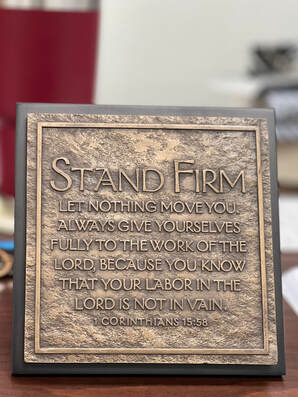 It is amazing how people and opportunities always seem to appear at the right place and the right time. I don’t mean to turn this into a religious post, but too many events seem to happen in my life when they are needed most to simply be coincidence or serendipity. I have written about the alignment of many people and circumstances that enabled my heart to be restarted so that I could have a second chance. I wrote about a stranger walking his dog on a coastal shore during the early morning hours who spoke truth into my life forcing me to listen. When the realization of his words hit me, I turned around to share my thoughts only to find he wasn’t there. Last week I wrote about the impact you receive from others, who pay it forward in dark times, when it is needed most to keep grinding forward, committing to continue your efforts to positively impact others. Today, I share another moment of clarity that has to be more than chance. A short time after I posted my blog last week that I mentioned above, I received a package at my desk. I recognized the handwriting as that of my mentor, who I have written about in the past. Inside was a motivational desk decor titled Stand Firm, a picture of which is above. It contained a verse from 1 Corinthians 15:58. “Let nothing move you. Always give yourselves fully to the work of the Lord, because you know that your labor in the Lord is not in vain.” I had not spoken to Steve for a couple of months. We had exchanged texts a month ago catching up on personal activities and travels with the plan to connect soon. So how did he know? How did he know that this is what I needed at this moment in time? He shipped the package across the country earlier in the week to show up at my desk, at the right place and the right time. The same day that I posted about the blessing of coworkers, friends, and family challenging me to help me deal with my frustration and to be the leader that they know I can be, I received a gift of love and support saying, Stand Firm. Contractually, Steve is no longer obligated to be my mentor. While he has mentored me for over 10 years, he has done so through our growing bond and friendship. The note in the package said, “I have always appreciated you as a friend and always will! STAND FIRM in all things that you do!!!” As I said at the beginning of this post, it is amazing how people and opportunities always seem to appear at the right place and the right time. It is the knowledge built upon experiences AND faith that enables me to STAND FIRM Beyond Today. 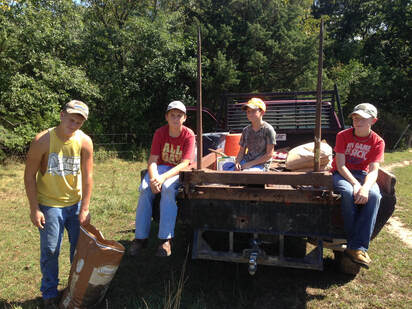 In my last post, Time to Clean the House, I tried to relate the childhood struggles of cleaning your room with some of the adult challenges you may face at work dealing with a messy situation or a difficult project. In this next post, I reflect back on the childhood trauma associated with being the youngest of five kids and trying to find ways to work with my brothers and sisters to get the job done. If you were fortunate like me, you grew up in a large family. With 5 of us kids and me being the youngest, the older ones were constantly looking for ways to complete their chores, but with the least amount of effort on their part. In my 53-year-old mind, I remember myself as being the victim to my older siblings' cunning and more worldly approach to getting things done. Plus, I was the baby of the family and widely known as the sweetest of the Brown kids. So, I’m pretty sure I never pulled these stunts myself. Below are some of the approaches that I remember my siblings taking to help with chores when I was a kid. Do any of these sound familiar to you? The Magician I was convinced for many years that my middle brother was a magician for his uncanny ability to walk into a room and in what seemed like a manner of minutes, would walk out with a clean room. What seemed to be a monumental task of cleaning a room that would take me the better part of a day, he always seemed to knock out in a manner of minutes without a sweat. Of course, only a 5-year-old could fall for his tricks as my mom would walk in, open the closet door and quickly step away as balls and stuffed animals came tumbling down. She would move the bean bag to reveal a pile of matchbox cars. Shoving things under the bed or into the closet may at first glance give the appearance of a clean room, but the experienced manager, in this case our mom, knows to open the closet door and look under the bed when inspecting. The Magician doesn’t address the clutter, they just hide it. The Martyr They like to spend more time talking about what they did then they actually spent cleaning their room or doing the chore. But they want everyone to know what they did and how arduous the task that they somehow, through the grace of God and their own perseverance, was able to overcome. Many times, the Martyr may be related to the Team Player. But related by marriage, like a cousin Eddie. They willingly help you do the chores and may or may not talk about it while it is happening, but afterwards, they go into full Martyrdom mode! The Banker While I do remember the Banker making an appearance once or twice during my youth, they would typically barter for my labor by offering up one of their treasures of such value that only big brothers can accurately describe. My more recent experience with this was watching my oldest son constantly “hire” his siblings to perform tasks throughout their childhood. What started as simple chores, turned into hauling hay, building fence and numerous other jobs with promised riches. But what I witnessed was the transformation of the Banker to the Wealthy Nigerian Uncle scam! The Deflector “But Mom… have you seen Bob’s Room?!” Honestly, not sure which sibling did this the most, because I’m sure we were all guilty of it at some point. But when Mom came to you about your room, your first reaction was to pull out the deflect and distract strategy in hopes that she would walk down the hall and transfer her wrath from your direction to that of your slovenly brother. Even the most experienced parent can fall victim to this trickster as they know just how to play on the emotions and push the right buttons. The Strategist Typically, this is the oldest child. They take the leadership role because hey, it’s not their first rodeo. They will typically call a family meeting and lay out their detailed plan showing how an organized and aligned approach will achieve the goal of a clean house. Further, to guarantee participation, they will show that by allowing people to use their strengths, they can get all of the chores done faster and more efficiently giving everyone more time for something fun. If necessary, The Strategist has been known to provide donuts or other extra benefits to coax them to action. The Strategist is a master of keeping their hands clean and callus free. The Team Player The classic, “many hands make lite work” person who always seems willing to lend a hand to get things done. They seem to make the chore run smoother and it always takes less time than it would have done alone. The best part is that the Team Player always seems to make the work fun. Now, you need to be careful, because sometimes what at first seems to be a Team Player, is actually someone in disguise. A regular Scooby Doo villain if you will. The Ghost The Ghost starts out as the Team Player and get you to agree that the two of you should work together to clean both of your rooms. Making it easier to get done and it will be more fun to work together. Somehow, they always start in their own room first. They work hard and provide direction to you as you work and show great appreciation for your help. Then, it’s time to move to your room and BAM! The Team Player transforms into The Ghost and is gone! Their room is now clean. Their goal is accomplished. They really have no reason to continue to help clean your room. You are left frustrated, tired, and facing your own room to clean - alone. The Helper Not to be confused with The Team Player, the Helper volunteers to help with the best of intentions, but typically becomes a distraction and not much of a helper. They tend to look through everything in the room, get distracted and start playing around. Sometimes they morph into Scope Creep and spend their time re-sorting or expanding the scope from cleaning the room, to reorganizing or even going as far as renovating the room! Ultimately, when things need to get done, taking ownership of the outcome is a great starting point. It takes ownership of all family members to create and maintain an environment that is free of clutter, organized and optimizes harmony in a living space. It is this same ownership in that family unit that translates to work teams and their ability to clean their room for the greater good. For work teams to be effective, time needs to be spent to make sure it is a strong team, with clarified roles and responsibilities, that are willing to work together for a common goal that can keep your room clean Beyond Today.  Do you remember as a kid how you agonized over cleaning your room? Typically, you would spend more time whining and trying to avoid doing it then it would actually take you to clean it. As adults, it often seems the same dread you felt as a kid when facing the chore of cleaning your room, returns to you when you are dealing with challenges at work that require change and improvement. Unclear Vision Cleaning is not necessarily the same as organizing. If the vision for the outcome is unclear, you can spend time vacuuming, dusting, and throwing away the old candy wrappers to the point where your room is shining. But you still have piles of clothes on top of your dresser instead of in your dresser. You may have taken every display item off your shelf and wiped them down but put them right back where they were. Many times, cleaning a room doesn’t reduce the content, it just rearranges the clutter. It’s new piles of the same stuff. Having an aligned vision that is well communicated between both parties can really help make sure that your time is spent working on things that add value. Under/Overestimate the Size and Scope Typically, when you are a kid, you see cleaning your room as possibly the largest obstacle ever faced by mankind. NASA might have sent a man to the moon, but I would like to see how they would go about cleaning up this mess. It’s going to take me… let’s all say it together… FOREVER! But quickly, as we get into it, we realize it isn’t as big a deal as we thought. We remove the dirty clothes and take out the trash. Wow, it starts to look better already. Pick up our toys and put them back into the toy box or on the shelf and you realize you are almost done. But there were other times, much rarer, when we thought to ourselves this won’t take long and I will meet my friends at the park and will be playing that game before you know it. Then you realize that you haven’t cleaned or organized your room in a very, very long time. Sorting through the stacks that represented the best of your life for the last few years. You question whether you can both clean AND organize your room in time for you to still make the game. Do you have to change the scope and ask forgiveness or take your chances and suffer the consequences. You start to regret not taking the time to clean your room all those times your parents reminded you that it needed to be done but you were just “too busy.” Bogged Down by the Clutter It is like staring down a driveway in winter with snow drifting up onto the car and it is still snowing outside. Where do you begin? How can you even show progress? As the feeling of being overwhelmed hits an anxiety level, you start to break things down logically and you create piles. Typically, you start with what needs to go. In today’s world, we now consider what goes into the trash and what needs to be recycled. Interestingly enough, this concept is true for projects, reports, ideas and also people. It sounds much colder when you talk about people, but it comes down to if they are not performing or are a distraction, then how do you provide guidance, training, or refocus to help them be successful. Your next pile is stuff you want to keep. Now this is tricky because as a kid, you always kept cool stuff. Things that meant something to you at the time. But you must consider if they are of real value or just a distraction. Is it something that needs to be displayed on a shelf and shared with others? Is it something that you want to hang onto because it will be valuable someday or that it something you want to share with others in the future, so that one goes into storage. Then you have stuff you don’t know what to do with and you either keep it, or you leave it in a pile and hope someone else can decide. That stuff may go into a garage sale or to good will. It may get passed down to your sibling or you give it to your best friend because they always liked to play it. The challenge is to not be distracted by the clutter. It’s easy to let yourself reminisce on the memories and experience the feelings associated with all you have collected. That personal connection can often cloud your judgment and cause you to hold onto items that you should be removing from your room. You justify why it’s important and why you must keep it. You commit to playing with that toy more, but the next time you have to clean your room. There it is again. Taking up space. Still cluttering your room. As adults, our life comes down to how we clean our rooms. Do we have aligned vision and purpose with those we work with and share our lives with? Do we take the time to understand the challenges before us so that we can properly work to overcome and improve? Do we have plans to prepare for the future state and minimize the challenges that we are facing and prevent a mountain of clutter piling up and instead of digging out, we are sorting through? Minimizing the clutter in our work, our life, and our minds is beneficial to keeping our own house clean Beyond Today.  I wake up every morning before the sun comes up, feed the dogs, make some coffee, and then spend time on myself - emotionally, spiritually, and mentally. I spend time reading, writing, and reflecting as well as attempting to keep my mind sharp with Wordle and Sudoku. I was working on a recent Wordle puzzle and found myself stuck on a word, which if you do this puzzle, you are aware that this can be common. I do follow a strategy of always starting with the same word. After that, depending upon which letters are correct, I do have some additional trigger words that I use to help me narrow down the options. When you create a process that works, you then look for other ways to use this effective process. We do this at work, sports and in life. You hear the phrase, “Trust the Process”, which means if you create a process, and with preparation and proper execution, the results will follow. Which is true for the most part, but what happens when your process has a built-in bias? Biases and perspectives are part of life. Whether it is the Mental Models you have formed over the years or the process you create to navigate Wordl, you need to recognize that how you see patterns, has an inherent bias that needs to be explored and understood. As I worked through the morning Wordle, I ended up with the pattern shown in the image, - - i - e, immediately I see a long “i” sound because of the “e” on the end. I run through a few words such as crime, prize, and twine before settling on “slide” as my guess. It reveals an “L” which only adds more confusion. It can’t be “glide” because it doesn’t have a “D”. I was stuck. If you have played Wordle, you find yourself making up words in your head, sounding them out to see if by some chance it is an obscure word of which only the truest of Jeopardy champions would be aware. So, you take a step back and gather your thoughts. You ask yourself what you are missing. If you recognize that you are stuck in a pattern such as the Baader-Meinhof Phenomenon when you buy a yellow car and then somehow you suddenly notice yellow cars everywhere! You open your mind to a new perspective. What if it isn’t a long “i” sound? You change your pronunciation, your perspective, and suddenly “olive” jumps to mind, and the puzzle is solved. If it is so easy to miss a word in a simple game, how many times are you missing the truth and reality in your relationships with people? How many times has your bias impacted a project at work? Negatively impact a play on the court? We are built upon our biases that we have experienced over a lifetime, but our strength comes when we can identify and overcome those biases that leads to our growth Beyond Today. 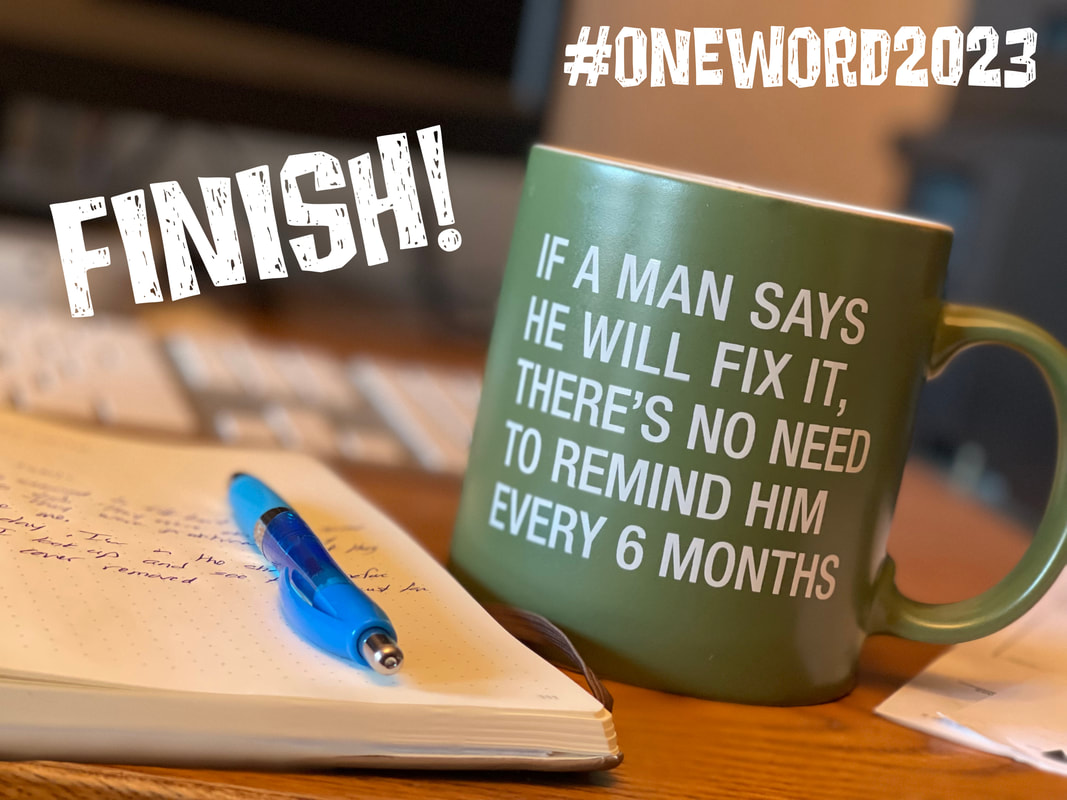 I spent many hours in reflection for my 2023 One Word (read Jon Gordon's book!) and while I was intrigued and moved by many words, the “AHA” moment never came. To be perfectly honest, I didn’t feel I ever truly got to that quiet place needed to really listen and hear what I needed. One word that I kept coming back to was WIN. This is a theme I am using at work to help people focus on outcomes more than the activities. Yet we are still emphasizing the process needed to win and not just a scorecard. Establishing a winning culture that wins the day, the moment to propel you forward with momentum. While the word WIN resonated strongly with work life, when I tried to apply it to my personal life, it always lost steam and I would find my mind wandering and identifying other words instead of reinforcing how WIN was aligned. But as I captured notes on these new candidates for my One Word, I noticed that the words seem to have a similar theme. From WIN, I jumped to VALUE. Some of the concepts that would quickly come to my mind were:
The word VALUE seemed like a good word, but it was almost too easy and when I considered my need to Value TIME, it led me down a deeper path. TIME to finish, to change, to accept challenges, to be healthy, to do different. I recognized that TIME must be valued and it can’t be wasted. My next twist was when I realized it was TIME to take the NEXT step and to seek the NEXT opportunity. As I considered the simple word NEXT and how powerful it could be in life, I considered that maybe it was really that I needed to MOVE forward on stalled activities and that I would be more impactful if I MOVE to the next stage. The obvious healthy reference with MOVE is there in the physical sense but also into MOVING to a different mindset. As so often happens when you are focusing your mind and opening your thoughts, the rabbit holes and pathways start coming faster. As I let myself wander further, searching for the One Word, the word TRANSITION presented itself as a leading candidate as I considered that in both my work and personal life, I am preparing to TRANSITION to new roles and the desire to VALUE the TIME to MOVE to what is NEXT was really about the processes associated with the TRANSITION as much as the result of the TRANSITION. While it seemed to all fit and that the culmination of my inward and upward thinking led me to the word TRANSITION, I did not feel the connection I needed to feel. I was not moved, and I decided to let it ride for some time and would find a later date to continue my One Word journey. Then one day, as I am in the shower prior to work, I am reviewing the One Word Questions and I look up and see the exhaust fan with the cover removed. The fan motor went out around 6 months ago and I immediately went to the local store and purchased a replacement. Due to some various challenges, I never got around to changing it out, much to the displeasure of my wife. I said to myself, “I need to FINISH that.” There it was. The summation, the connection if you will, between all the words I had been considering. The theme was that I not only need to make progress in my life - both personally and professionally - I had to finish these things to move forward. Being busy with one foot only moves you in circles. To TRANSITION, you need to take actions that MOVE you forward to the NEXT step, taking TIME to create VALUE that helps everyone win but this can only occur when you FINISH what you started. Life is more than effort. It is more than movement. Life is about creating value, which happens when you are able to FINISH your goals and move forward Beyond Today. Other Blog Posts on One Word: One Word can have an Impact in 2022 Listen to My One Word from 2017 Focus on One Word in 2021 One Word for the New Year  So far in 2022, I have read or listened to 17 books, with only 4 of them being books I actually read. For those who struggle finding the time to read, I highly recommend trying out Audiobook or some other form of listening. I am able to do this while getting in my steps by walking outside or on the treadmill. That being said, I must warn you that there can be a safety risk if you attempt to take notes while you continue to walk… or there might be an issue… I really don’t know that from first-hand experience of walking off a sidewalk or into another walker… I have included the entire list of books later in this post for reference but will try to highlight a few of the ones that I highly recommend. Biographies Viktor Frankl’s Man Search for Meaning is an interesting roller coaster of emotion as he uses his experience as a survivor of Auschwitz to give way to his theory of logotherapy that the primary motivational force of an individual is to find a meaning in life. Killing the Killers by Bill O’Reilly is the second book of his I have listened to and thoroughly enjoyed. The amount of research that goes into his books becomes very apparent in audiobooks as they reference every footnote. It is the blunt and direct style of presenting history and sharing the documented recordings that tends to connect you emotionally to his writing. Leadership & Growth Liz Wiseman’s books Impact Players and Multipliers are very powerful is assessing yourself and your team. These are must reads and you need to be prepared to open up and critically evaluate where you are as a leader. Fierce Conversations by Susan Scott can serve as a kick in the gut and cause some feelings of guilt. But also, helped to drive to action for some situations in which I was standing and watching instead of helping. Books for Non-Readers For those who find it difficult to read leadership and self-help books, you need to start with books by Jon Gordon. This best-selling author typically writes his books in story form, almost like parables that demonstrate the importance of strong character in being successful and a person of impact. They are short reads and many times, he will write these books with other writers, helping them to get their experiences out in front of people. His writings are entertaining, motivating, relatable, and impactful. This year I read Stick Together and Row the Boat and have previously read 11 other books he wrote. The Way of the Shepherd is another must read. It is a short and easy read, in a story form that delivers an important message on servant leadership. My Guilty Pleasures I don’t spend much time anymore reading the fun books like I did in my early years. I used to enjoy reading Robert Ludlum, Tom Clancy, Louis L’Amore, Tolkien, and Dean Koontz. But those have given way to books on leadership, growth, positivity, and faith. However, on Audiobook, I have found some authors that not only write stories that are easy to get lost in, but the narrators they use for the audiobooks, are gifted in how they tell the story and capture your attention. I listened to Dreadgod by Will Wight this year, which was the latest in one of his series, but 19 last year! Rhett Bruno and Jaimie Castle teamed up on a western supernatural story, Cold as Hell, that was a sequel of a book I listened to earlier. The original books from last year were free on Audiobooks as the authors became established, they then had to be purchased. I have always enjoyed reading, but as I have gotten older and hopefully wiser, I now read with a purpose. My purpose is to expand my knowledge and experiences - not by the words of others, but by adding perspectives so that I can question my own beliefs as well as those of others. I choose to take the thoughts and experiences of others, combine them with my own, and put them into practice to be a better leader and person Beyond Today. Jan - July 2022 Reading List The Master Coach by Zackary Turner Dreadgod by Will Wight Cold as Hell by Rhett Bruno & Jaime Castle Stick Together by Jon Gordon & Kate Leavell Man's Search for Meaning by Viktor Frankl Row the Boat by Jon Gordon & P.J. Fleck Killing the Killers by Bill O'Reilly Fierce Conversations by Susan Scott Multipliers by Liz Wiseman Sidney Crosby by Sidney Crosby Finding Your Best by Dr. Michael Gervais & Pete Carroll The Mentor Leader by Tony Dungy The Mindful Athlete by George Mumford The Leader's Mind by Dr. Jim Afremow The Way of the Shepherd by Dr. Kevin Leman & Bill Pentak The Sidelines by Alan Stein Jr. Impact Players by Liz Wiseman Update 1/29/24: Steve is no longer engaged in mentoring and coaching with my previous company, but our friendship continues. That mentorship doesn't go away because of a change in positions or business relationships. True mentorship is not something that is hired but is found, is given, and in some ways earned - just like the Trust and Respect that I talk about later. Careers may change. Where you live may change. But true friendships survive those challenges and many times flourish. The Power of a Mentor can be found in the IMPACT it leaves behind. 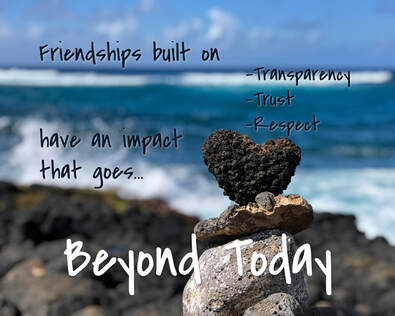 When I was promoted to the Executive Team where I work, the owner of the company requested that I find a mentor. Easily, two names jumped to the top of my list. One, I had known for some time, who had a dynamic personality and thrived as an entrepreneur and a leader. While he came across as a Type A personality type who was driven, he also was committed to his teams, empowering them for success and the growth of the individual. The other potential mentor, I had only recently met but he carried himself with grace and a calmness that seemed to make everyone at ease. He also had started and sold many businesses and was currently serving on our Executive Advisory Board. Choosing Your Mentor As I considered both potential mentors, my initial inclination was to go with the person who I knew longer who also seemed to be a more natural fit. I knew we already had a connection based on our history as we had similar interests and personality. But, as I thought deeper, I realized that I don’t need more of me, I needed to expand and grow so that I could bring in additional perspectives as well as stretch myself to be more than a dynamic leader but also to become a servant leader. On that day in 2013, I could not imagine how much impact that decision of having Steve Moles as my mentor would make on my life. Steve and I made an immediate connection and through our time together, built an extremely strong friendship. Steve said in the early days that a friendship is built on 3 things”
Connecting with your Mentor Steve and I typically meet once a month via a phone call or possibly a Teams meeting. Prior to the pandemic, it was always in person, and we would typically add in a meal or possibly Steve would attend one of my kids’ activities. The mentorship moved beyond a work relationship, to simply a relationship. We both try to prepare for our meetings by reviewing past notes and topics as well as capturing those items that should be part of our upcoming discussion. I knew that the first thing I wanted to discuss was Steve and how he was doing. After our last meeting, Jenny, my wife, had asked some questions about how Steve and his family were doing. I was embarrassed to admit that it didn’t come up as we focused heavily on my situation. I recognized that it was something I needed to make sure and fix, so during some of our frequent exchanges, via email and text, I would inquire into how things were going personally. There were some nuances in his responses that made me realize that we needed to spend time discussing his situation in more detail. A fruitful discussion followed as we caught up on all that life brings. Steve’s calmness, positivity and wisdom were on full display as he shared this perspective: “There is light at the end of the tunnel, it’s just a longer tunnel than we thought.” As we shared our personal challenges, the topic of our health rose to the forefront. Together, we discussed our situations and set goals, together, to aid in our program. Was this work related? Nope. But it is important to our overall health and well-being which directly relates to our ability to have an impact on others. We then jumped to the topic of an upcoming video series that Brewer Science will be sharing in the Virtual Learning Lab, where I discuss the 3 Pillars of Impact. I shared my concern about whether we will know of the value or impact we gain from these videos - the same concerns I have when I post my writings. This led to the realization that this challenge exists in many areas, and we identified some steps to talk to move us towards a solution. This brought up a previous discussion where Steve had shared that to have an Impact your engagement or writing needs to Captivate, Stimulate and Motivate. We talked about how to do that with the intended audience and whether we are targeting the right audience. Steve shared the thought that “we don’t know our capabilities until we go beyond them.” More powerful insight about our own self-assessment as well as understanding the potential of others. We then moved on to the subject of responsibilities and leading an organization. A great discussion on Ownership vs Accountability led me to begin to draft a future article about how you must own your failures. More on this subject in the future. Steve also challenged me on where I am spending my time - am I in the Tactical world or the Strategic world? The reality is that they are not mutually exclusive, and they can coexist. Throughout a day, you will move back and forth between the worlds, but you must possess the skills to address both challenges. But where should I be spending my time? Outcome of Mentorship At the conclusion of our call, I walked away with three action items. They were not assigned by Steve or verbalized by me during the meeting. But as I reviewed my notes, they jumped out of the page and spoke to me. These were things I needed to do to be a better leader. A better father. A better husband. A better person. The power of the mentor goes beyond what he shares and what he gives. It is what he instills in you and helps you become. The servant leadership is on display so that you desire to be a better person together. While I try to show and speak my appreciation for the relationship with Steve, I never seem to do it justice. The impact of the time spent with Steve is something that I cannot measure today because the magnitude of the ripple effect from those he has served will be felt well Beyond Today.  In the book Multipliers, by Liz Wiseman, she writes about how Diminishers ask questions to prove their points and not to gain insight. They fill the void with explanations and justifications of their ideas instead of listening to truly understand others. As I was reflecting on this section of the book, I realized that this is a common occurrence where I work, but also, something I engage in on a regular basis. I quickly realized there are some other common reactions to receiving feedback that are not always helpful. Getting Defensive You know this feeling well. You can feel the heat rising, you know your cheeks are getting a little flushed and you want to lash out and explain all this person’s faults. You want to talk about your past success and turn it back on the person providing you feedback. I had this experience just this week when I was provided some feedback on a way to improve the way I present updates in the monthly report. While I may be justified in my feeling that this person should not be throwing stones when they clearly live in a glass house, it doesn’t mean the advice or feedback they gave me is wrong. It was still valid. Justify This is another common reaction to feedback. One that I have found often in leadership settings when they receive feedback from surveys or Q&A sessions. Instead of listening to the intent or questioning deeper into their perspectives, they immediately justify and explain away the question as someone who just doesn’t understand or that they are looking at too narrow of a picture. Several years ago, the engineering group in my organization saw a drop in their engagement score. We could have easily justified it as to the workload, or the nature of the projects but instead, the Director decided to dig in deeper, ask questions and seek to understand. He quickly realized that there was a level of frustration because we had limited the travel budget in his group, and they were not able to attend conferences and present papers. We quickly made an adjustment to the budget and created a schedule and the following year, the score jumped significantly to lead the company. Instead of justifying a response, the leader chose to listen, seek clarity and then act. Let’s Talk About Me This may be the biggest challenge for me! I am a talker who loves to tell stories. “Hey that reminds me…” or “I know what you mean, one time ….” Those that know me are probably shaking your head as you read this - either in amusement or possibly uttering a few choice words under your breath! In Fierce Conversations, Susan Scott advises, “Don’t take the conversation away from others and fill the air with your stories.” Yep, this was a gut punch for me. Let Me Repeat Myself When someone challenges or provides feedback, my initial reaction is to provide additional clarity by repeating myself - maybe a little slower and a little louder - to make sure they heard me the first time. This is one of my pet peeves. People repeat themselves as if I must not have heard the brilliance of what they said or am not of significantly adequate intellect to fully comprehend what they said. When in reality, I am struggling with how they came to the conclusion that this was a good idea. The irony is that this is always my first response. When someone provides feedback to me. “Oh, I must not have been clear.” or “Let me say it this way.” Too often I am focused on me and my position rather than on the position of the other person. I am not engaged and locked in to receive their feedback. I heard them, but I did not listen to them. Hearing vs Listening There is definitely a difference between hearing someone and listening to someone. I consider hearing as an event. It typically is outside your control.
One of my favorite parts of Susan Scott’s book, Fierce Conversations, is when she talks about the power of listening and how it is critical to have a successful conversation. She says this about the power of listening: “It’s not enough to hear the words - that is only the beginning. But do you hear the fears, intentions and aspirations?” When you can engage in a conversation so deeply that the feelings and intentions are able to come forth from their words, then you are truly listening. She goes on to talk about how “intent is the scaffolding on which a story hangs.” I found this a great visual on why getting to the intent of a discussion and not just the surface talk is so important. Engaging, being present and hearing for intention are ways to move you from hearing feedback to listening to feedback. Listening with intent will grow the conversation and increase your ability to impact others so people will continue to engage you Beyond Today. |
AuthorTom Brown - a husband and a father who is simply trying to make a difference. Using my experience as a Manufacturing Executive to connect leadership from the boardroom to the hardwood to help teams grow and develop to make a difference in the lives of others. Archives
May 2024
Categories |
Proudly powered by Weebly

 RSS Feed
RSS Feed
